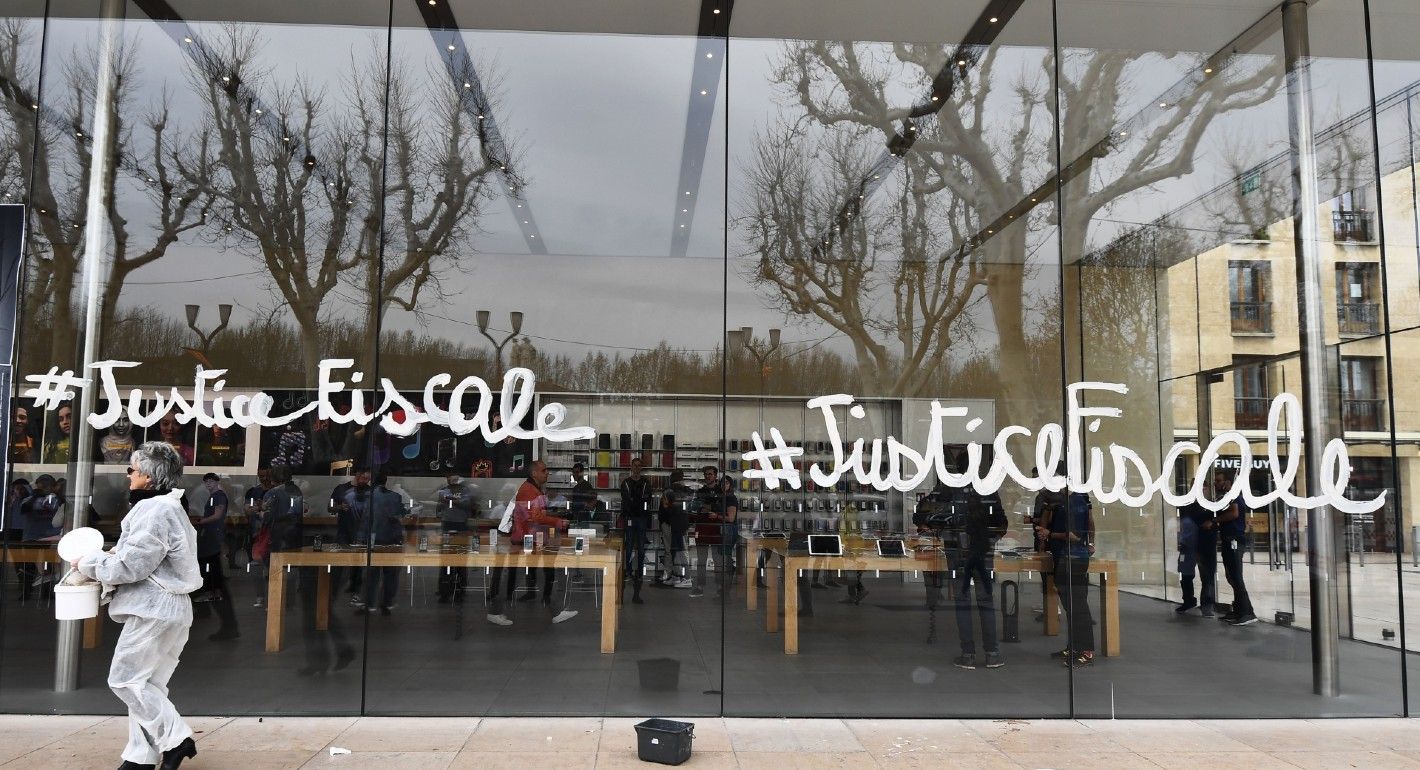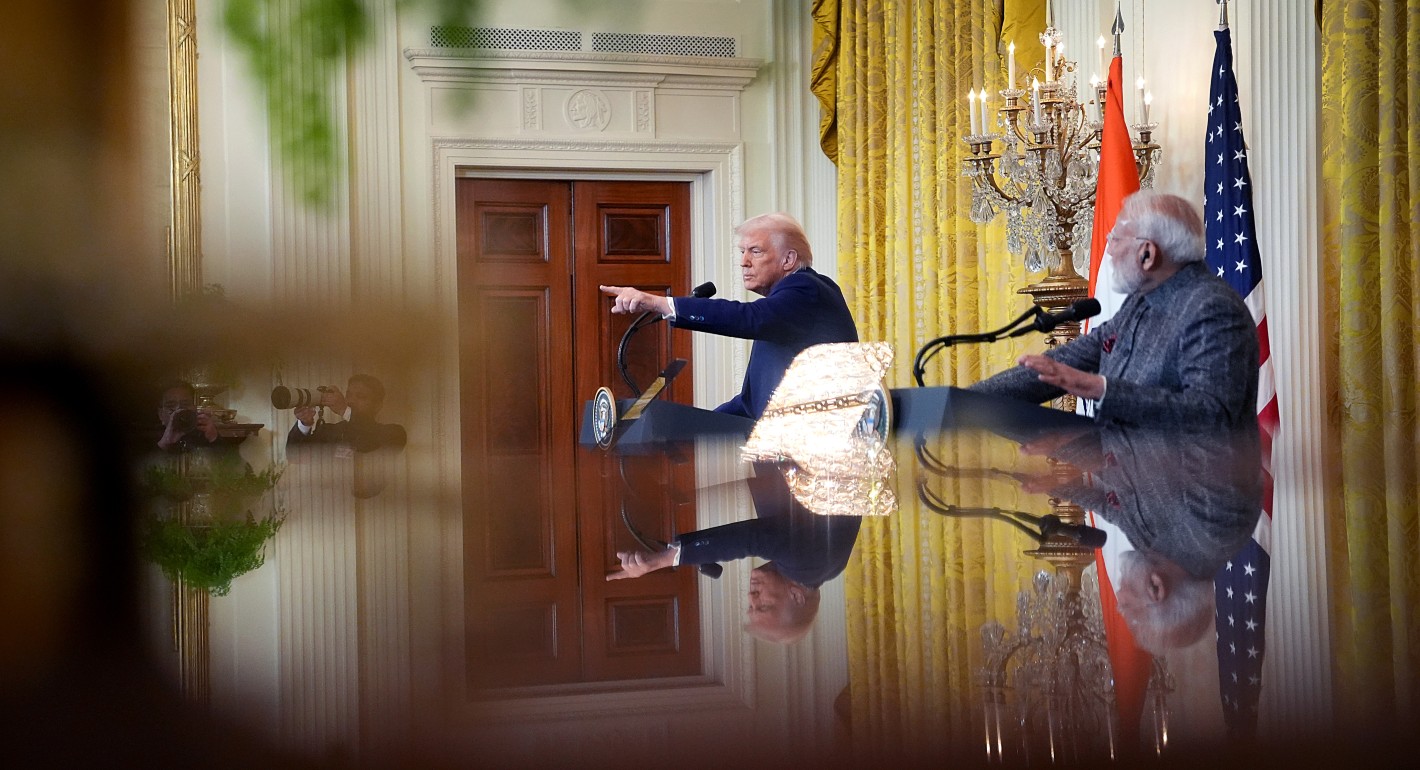This essay is part of a series of articles, edited by Stewart Patrick, emerging from the Carnegie Working Group on Reimagining Global Economic Governance.
As the twentieth century’s great powers retrench and turn inward, and rising powers resist investing in an international system they did not create, global tax cooperation, perhaps uniquely among international issues, has shown real progress. The world now has an opportunity to consolidate this progress and drive two fundamental transformations: in the relationship between the superrich and globalization, and in the financing of global public goods.
On the policy side, a global minimum corporation tax of 15 percent came into force on January 1, 2024. By reducing the ability of jurisdictions to act as tax havens, it promises to increase annual tax revenue by $150 billion to $200 billion, according to the Organisation for Economic Co-operation and Development (OECD). This agreement is not yet fully global, and is riddled with loopholes, but nevertheless it represents a previously unimaginable step in setting international norms. On the process side, the world achieved another once-inconceivable victory for inclusiveness in late 2023, when the United Nations (UN) General Assembly voted by majority to create a Global Tax Convention under UN auspices. It is not yet clear how this convention can be turned into something genuinely useful, but for the first time, every country will be participating in global tax negotiations.
As part of that progress, the UN should update its old foreign aid target of 0.7 percent of gross national income (GNI) from high-income countries, by using extreme wealth holdings to assess every country’s “fair share” obligations toward solving international problems. In this way, tax justice can lay the groundwork for global public investment (GPI)—a fairer, more effective way to finance international public goods, whereby all countries contribute according to their ability, all countries decide on how the funds are spent, and all benefit from the international system.
The Fraying Social Contract
Deepening commercial and political ties among nation-states over the past half-century have been the driver of explosive economic growth for some, yet also have produced vast inequality. A central attribute of financialized globalization is that powerful people and corporations have accrued most of the economic returns, while simultaneously slashing their contribution to the public weal in the form of taxation.
This essentially is a problem of solidarity at both the national and international level. Within countries, as a hypermobile elite makes off with the proceeds of economic growth without paying its fair share into public services, these services increasingly are starved of the resources they need. The irony is that the wealth of the very wealthy and the intellectual property of the biggest companies have been bolstered by government spending—including asset-inflating monetary policies or investments in state education and infrastructure that allows corporations to flourish. In the words of professor Mariana Mazzucato of University College London, “we have socialized the risk of innovation but privatized the rewards.”
Taxation, in this context, is a topic that deserves far more attention. If there is one lesson from history about how to build a political community, it is that there needs to be a sense of fairness about how taxes are paid. Without that, revolution is never far away. Two prominent examples (among many others) are the American Revolution, inspired by the slogan “no taxation without representation,” and the French Revolution, driven in part by anger that the nobility paid no tax. In an age of mobile, financialized wealth, however, the goal of national tax justice cannot be realized through domestic policies alone; it requires international cooperation. Unless jurisdictions can obtain and share information about who owns what, unless they can agree on a set of rules for how companies can allocate their costs and profits, and unless they can agree on a minimum level of taxation, it will always be possible for the powerful to move, hide, or otherwise extract their money from the reach of national tax authorities.
A Path Half-Walked
Even though global tax cooperation gets nowhere near as much attention as it should, many politicians understand its importance. No country can effectively tax its own citizens without it. This alignment of interests helps explain why multilateral cooperation on taxation has witnessed great progress.
To date, international discussions on tax have mostly been mediated through the OECD, with a mandate from the G20. That process has included enhanced transparency requirements and data sharing, with more than 100 countries joining an information exchange system that is estimated to have reduced tax evasion using offshore accounts by two-thirds. More recently, an OECD/G20 Inclusive Framework on Base Erosion and Profit Sharing, including the global minimum 15 percent tax on corporations, was adopted by 140 jurisdictions and came into force in an initial group of countries in January of this year.
Despite these advances, many countries in the Global South remain deeply disappointed with the status quo. Although they eventually were included in the discussions at the OECD, they did not feel their voices were heard, leading to the charge that they were only at the table to be on the menu. Activists complain that the new minimum corporation tax will raise far less than it could have done. Most damaging to the credibility of the OECD-led process is the fact that the United States has refused to sign all of the agreements, including Pillar Two, which sets a minimum corporation tax.
Those who have most loudly defended the OECD as the lead organization on tax have claimed that a wider UN-led process would be unworkable, because countries like the United States would not get on board. But since the United States also refuses to sign up to rules developed by the smaller, more like-minded OECD, Global South countries understandably wonder what they would lose by instituting a more inclusive process.
The New UN Convention
After many years of advocacy, and in the face of strong opposition from the United States, the United Kingdom, and other rich countries, a large majority of the UN General Assembly, led by the G77 and the Africa Group, voted to create a global tax convention, definitively making tax cooperation a UN issue.
Historically, UN discussions on taxation have been limited to an “expert committee” within the Department of Economic and Social Affairs. The twenty-five experts are nominated by countries but participate in a personal capacity and have no mandate for action. By contrast, a new UN framework convention on tax cooperation would be a binding agreement. Delegates are still at the early stages of discussing what the convention will look like, but for an indication of the possibilities, one could look for example at the UN Framework Convention on Climate Change, which led to the creation of a permanent secretariat within the UN to lead progress on the issue, including the negotiation of the 2015 Paris Agreement.
Two things will need to happen to build on this momentum. First, the objectives of the convention must be clarified. It cannot solely be about making tax discussions more inclusive. It needs to help deliver improved tax systems that recoup lost revenues, increase fairness, and fund public goods. To date, there seems to be little in the way of consensus, even within regional blocs, about what this convention should achieve. Second, coalitions must be built. The countries that want to make this convention advance the cause of global tax justice need to form strong negotiating coalitions. Every country has a single vote at the UN General Assembly, but that representation does not eliminate the vast power imbalances within the global economy.
The strongest leverage that Global South countries have in these negotiations is to threaten plurilateral solutions that demonstrably are more harmful to high-income countries than a truly global taxation framework. It is inherently difficult for a country like Kenya or Nigeria to hold the line on unilateral digital taxes in the face of U.S. pressure, for example. But if a hundred or more countries were to unify around a position of enforcing digital taxes, based on a percentage of sales made in their jurisdiction, it would be far harder for powerful nations to pick them off one by one.
A Proposal: The Contribution of Wealth to Global Public Goods
One way that the UN process can add value is by linking two critically important issues: taxing wealth and providing global public goods.
As wealth became more mobile in the late twentieth and early twenty-first centuries, it became ever harder for countries to unilaterally maintain wealth taxes. One by one, countries like Sweden, Spain, and India removed them. The final nail in the coffin of unilateral wealth taxes was France’s cancellation of its solidarity tax on wealth in 2017. Meanwhile, the proportion of wealth held by the world’s rich has skyrocketed, as has the inequality of its distribution. For example, a recent report by Oxfam claims that since 2020, the world’s five richest men have doubled the size of their fortunes, while the wealth owned by the poorest five billion people (60 percent of all humans) has fallen.
Several proposals for a global minimum wealth tax have been made. The European Tax Observatory offers a moderate proposal of taxing the wealth of billionaires at 2 percent annually. The proposal is a sensible place to start because there are so few billionaires that it is relatively straightforward to work out where they are. The observatory estimates that its proposed tax would raise around $250 billion per year: a third from North America, 30 percent from East Asia, and 20 percent from Europe. South and Southeast Asia would provide 8 percent, with other regions’ share being lower still. The billionaires of sub-Saharan Africa would pay just 0.4 percent of the total. The proceeds of such a wealth tax on the global elite should form the basis for calculating the fair share of each country in contributing toward the international system for solving global problems.
Since the 1970s, the UN has called for high-income countries to provide 0.7 percent of their GNI in official development assistance (ODA). Regardless of whether this was ever a sensible target, it certainly is not now, given massive changes in the world economy and the rise of global challenges. Most of the world’s population and economy sit in places that are too rich to receive ODA but too poor to be expected to contribute to it. Nonetheless, pandemics and climate change pose universal threats. Every region has pockets of extreme wealth, but the G7 still contributes 75 percent of ODA. Poorer people in Europe and North America have every right to ask why their taxes are going abroad to solve far-off problems.
A better way of thinking about international financing is a GPI, where every country contributes according to its ability, every country has a role in deciding how money is spent, and every country benefits from the impact of cooperation. When thinking about how much each country should contribute, there can be no better formula than a percentage of the wealth held by the very richest. The proposed 2 percent global tax on billionaires—which would raise $250 billion, or about the same as total ODA in 2022—provides an ideal basis for this formula. No one, after all, has benefited more from international cooperation than billionaires. Their wealth is generated, invested, and held in hundreds of jurisdictions, and is protected by the rule of law and freedom of trade that the international system underpins. Moreover, no one has contributed to global challenges, especially climate change, more than billionaires, each of whom has a carbon footprint equal to thousands of regular citizens. And none can more easily afford to contribute to solving them.
Of course, it is not necessary for countries to actually implement a wealth tax, for billionaire wealth to be considered the basis for calculating their fair share contribution to international financing, just as there is no hypothecated tax to raise the 0.7 percent of GNI they are currently expected to provide for ODA. But simultaneous progress on implementing both the taxation of wealth and the norm of GPI would be a mutually reinforcing cycle that could contribute to restoring fairness and strengthen our ability to face threats like climate change.
The UN, given its long-standing mandate on development and its growing mandate on taxation, is in a unique position to advance progress toward setting powerful norms linking extreme wealth to national contributions to tackle global problems. Now that Brazil’s President Luiz Inácio Lula da Silva, this year’s G20 host, has set the concept of wealth taxes high on the agenda, the UN has an opportunity to turn this momentum into irreversible change.
Hassan Damluji is a co-founder of Global Nation, a think/do tank that advises the world’s leading development institutions and builds coalitions for a fairer international system. He is a senior adviser to the WHO and one of the strategic architects of the Berlin Pandemic Hub. He is also a senior adviser to the Gates Foundation, with a focus on the Middle East region and global development finance advocacy.










